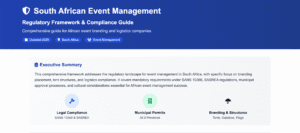Are you struggling to plan the perfect event? Well, fear not, because we’re here to help! Fact: Effective event planning is essential for a successful and memorable experience. In this article, we’ll guide you through the art of event planning and provide valuable tips and tricks along the way. Get ready to become an expert in creating unforgettable gatherings that leave a lasting impression. Ready? Let’s dive in!
Key Takeaways
- Event planning is a creative process that involves coordinating logistics, design, and hospitality to create impactful gatherings.
- Effective event planning is important for the success of any function as it decreases uncertainties, provides focus on goals, and ensures guest satisfaction.
- Identifying your strengths and passions in event planning helps define your niche within the industry.
- Finding your target audience through market analysis and customer profiling is crucial for successful event planning.
- Choosing the right venue sets the desired tone for an event and enhances guests’ overall experience.
- Utilizing event design and decor creatively adds visual elements that elevate the atmosphere of an event.
- Incorporating interactive elements such as technology, audience participation, engagement tools, displays, feedback mechanisms, multimedia integration, and live performances enhances attendee experiences at events.
What is the art of event planning?
Event planning involves orchestrating a symphony of logistics, design, and hospitality to create impactful gatherings. It is the act of coordinating events down to the smallest detail – from designing invitations to managing budgets and timelines. A successful event requires a thorough understanding of the event planning stage breakdown, ensuring that each component aligns seamlessly. This meticulous approach not only enhances guest experiences but also allows for creative expression within the structured framework of the event. By prioritizing effective communication and collaboration among vendors and stakeholders, planners can navigate challenges and elevate every aspect of the occasion.
The essence lies in creating an environment which engages attendees actively while accomplishing specific objectives. Whether it’s a cultural programme or a business conference, every aspect demands precise execution for captivating experiences.
Thriving on relationships built over time, networking emerges as one of its key aspects alongside marketing and managing event production efficiently. A well-planned event even makes use of themes resonating with guests for holistic experiences that live beyond the moment.
This art combines creativity with meticulous attention to detail, transforming ordinary meetings into extraordinary memorable occasions.
Importance of effective event planning
Effective event planning sits at the heart of any successful function. It helps to decrease uncertainties while providing a clear focus on goals, making it essential for companies keen on promoting their services or products.
This process draws heavily upon strategic planning and well-thought-out goal setting, infused with excellent communication strategies and unflinching organizational skills. Time coordination becomes paramount, as does budget management, while promotional activities rely on methodical marketing strategies for effective stakeholder engagement.
In the world of events where details can make or break experiences, efficient event planning emerges not just as an art but also a necessity.
Establishing Your Niche

Identify your strengths and passions, find your target audience, and create a niche that sets you apart in the art of event planning. Want to know how? Keep reading.
Identifying your strengths and passions
Identifying your strengths and passions in the event organization sector gives you an edge over others. Being passionate about what you do drives enthusiasm which is a necessity for great event planners.
Perhaps your strength lies in multitasking and managing logistical details, or maybe you thrive on creativity and design elements of event production. Discovering these strengths early will help define your niche within the industry.
Maybe food and nutrition knowledge stands out as an asset because it allows unique insight into catering operations. It could be that building relationships comes naturally to you, providing advantages for networking with vendors and clients alike – this can prove extremely beneficial when establishing your niche.
Whether it’s design, creativity, organization or networking that excites you most about this profession, understanding yourself plays a vital part in becoming successful in the field of event management.
Finding your target audience
Proper audience segmentation sets the foundation for successful event planning. Your target audience is the group of individuals who have a keen interest in your event or can connect with it on some level.
To identify them, start by determining your total addressable market (TAM), which will give you an insight into how many people could be interested in what you offer.
Next, conduct a thorough target market analysis and consumer research. Not only does this process help outline potential attendee personas but also unearths any areas of unmet market demand.
Dive deep into your niche and use detailed researched information to further refine your understanding of the people most likely to attend your event or buy from your company.
Customer profiling plays an integral role here – analyze existing customers, perform customer interviews and utilise these insights to add more precision to our targeting efforts. Lastly, effective application of various market research techniques will assist in comprehending their preferences as well as evaluating the overall market demand for identifying niche events with high growth potential.
Creating a Memorable Environment

Choosing the right venue, utilizing event design and decor, and incorporating interactive elements are essential in creating an unforgettable experience. Read on to discover the secrets of crafting a memorable environment for your events.
Choosing the right venue
The perfect venue paves the way for organizing a successful event. It has an enormous influence on guests’ overall experience and leaves a lasting impression. The environment needs to reflect the ambience you want to convey, setting the desired tone that aligns with your event’s goal.
A well-selected location helps enhance this tone while providing a more engaging and memorable atmosphere.
The choice of venue also determines crucial planning details such as date and capacity. You should consider how many people can be safely accommodated without compromising comfort or accessibility.
In this stage of event organization, key factors like proximity to transportation links, availability of necessary facilities, and compliance with safety regulations are essential considerations too.
Successful events hinge heavily on these practical aspects which cater directly to guest satisfaction.
Utilizing event design and decor
Creative use of event design and decor significantly enhances the atmosphere at any gathering. It involves the strategic arrangement of visual elements, style and aesthetic features to give a unique feel to an occasion.
From eye-catching lighting designs to captivating sound arrangements, every detail contributes towards transforming a venue in line with your desired vision. A well-executed design plan elevates an event’s impact, helping you craft unforgettable moments that resonate with attendees.
Incorporating interactive elements
Interactive elements play a pivotal role in creating a memorable environment at events. Let’s delve into how to strategically incorporate these features:
- Integrate interactive technology: Use advanced technology such as virtual reality and augmented reality which can offer immersive experiences for the attendees.
- Promote audience participation: Crafting activities that require attendee involvement can keep them engaged, entertained, and more attached to the event experience.
- Utilize engagement tools: From live polls to Q&A sessions, these tools encourage feedback from attendees, making them feel valued and part of the event’s success.
- Set up interactive displays: Interactive booths or exhibits give guests something tangible to explore and remember about your event.
- Implement feedback mechanisms: They provide instant audience response which is useful for measuring attendee satisfaction and areas of improvement.
- Incorporate multimedia integration: Multimedia enhances storytelling techniques and makes events more engaging, memorable, and immersive for attendees.
- Focus on event enhancement: By leveraging interactive elements like live performances or workshops, you amplify the overall event experience while offering attendees value for their time invested in your event.
Premier Event Services and Solutions for Memorable Occasions
Premier Event Services shines at crafting unforgettable events that leave a lasting impression. They master the art of event planning, working within budgetary guidelines while still delivering extraordinary experiences.
Their skilled team excels in every facet of event production from choosing the right venue to rolling out interactive elements that keep attendees engaged. Solutions provided by Premier Event Services tackle common industry challenges head-on, effectively addressing issues like understaffing and data collection from key stakeholders.
Whether it’s about incorporating unexpected surprises or customizing experiences for your audience, they’ve got you covered!
Surprise and Delight Your Audience
Incorporate unexpected elements and personalized experiences to create lasting memories for your audience.
Incorporating unexpected elements
Incorporating unexpected elements is a key strategy in event planning. It adds excitement and surprise, making the event more memorable. Here are some ideas to surprise and delight your audience:
- Surprise performances: Include unexpected entertainment like flash mobs, acrobats, or fire dancers to captivate your guests.
- Interactive installations: Set up interactive installations that allow guests to participate and engage with the environment in unique ways.
- Themed surprises: Incorporate themed surprises that align with the event’s purpose or theme, such as surprise guest speakers or special appearances.
- Unexpected food experiences: Offer unconventional food options like interactive culinary stations, local cultural dishes, or unexpected food pairings.
- Customized activities: Provide personalized touches by offering activities tailored to each guest’s preferences or interests.
- Unpredictable decor: Use unconventional decor elements like hanging floral arrangements or unique lighting installations to create a visually stunning atmosphere.
- Unexpected twists: Create surprising moments throughout the event that catch attendees off guard and leave a lasting impression.
Personalization and customization
Personalization and customization are key aspects of successful event planning. Clients today are seeking personalized services that cater to their specific needs and preferences. By incorporating personalization, event planners can engage attendees on a deeper level and create unique and tailored experiences.
This can be achieved through targeted marketing efforts, customized messaging, individualized services, and audience-specific materials. Personalized event management allows for a client-centric approach that ensures every detail is tailored to the client’s desires.
With the right strategies in place, event planners can surprise and delight their audience with memorable experiences that leave a lasting impression.
Creating memorable experiences
Incorporating unique and creative elements into your events helps to create memorable experiences for attendees. Whether it’s through personalized touches, themed decorations, or surprise-and-delight moments, the goal is to engage and delight guests in ways they won’t soon forget.
By enhancing the overall experience with interactive activities and cultural elements, you can foster conversation, bonding, and a sense of connection among attendees. Every effort made to make your event stand out and leave a lasting impression will not only promote positive word-of-mouth but also ensure that your audience feels valued and eager to attend future events.
Building Your Rockstar Team
Choose team members who are skilled and passionate, communicate effectively, and use technology to enhance collaboration. Find out how to build a rockstar team for successful event planning.
Choosing the right team members
Choosing the right team members is crucial for the success of an event planning team. Here are some important factors to consider when selecting your team:
- Skill alignment: Ensure that each team member has the necessary skills and expertise that align with their respective roles in event planning.
- Cooperation: Look for individuals who can work well in a collaborative environment and contribute positively to a team dynamic.
- Selection criteria: Establish specific criteria for hiring team members, such as relevant experience, qualifications, and references.
- Event organization: Consider individuals who have previous experience in managing events similar to the one you are planning.
- Volunteer recruitment: If you plan on including volunteers in your event planning team, recruit those who are enthusiastic, dependable, and committed to the cause.
- Training: Provide adequate training to your team members so that they are equipped with the necessary knowledge and skills to carry out their responsibilities effectively.
- Effective communication: Look for individuals who possess strong communication skills and can effectively convey information to stakeholders involved in the event.
- Stakeholder interaction: Seek team members who are skilled at interacting with various stakeholders, such as clients, vendors, sponsors, and attendees.
Effective communication and leadership
Leaders in the event management industry must possess effective communication skills and demonstrate strong leadership qualities. Clear and open communication is crucial for a successful event, as it ensures that objectives and expectations are understood by all team members.
Moreover, transparency fosters cooperation and collaboration among team members, promoting a positive working environment where everyone feels valued and heard. By building a rockstar team through effective communication and leadership, event planners can create memorable experiences that exceed audience expectations.
Informal communication also plays a role in establishing relatability between leaders and their teams, making them more approachable and genuine.
Leveraging technology and tools
Event planning has been revolutionized by the use of technology and tools, making it easier, more efficient, and cost-effective. With digital solutions and software platforms, event planners can organize various aspects of their events in a streamlined manner.
Collaborative tools enable effective communication among team members, leading to better coordination and successful execution. Moreover, data analytics provide valuable insights into attendee behavior and preferences, helping event planners create personalized experiences that surprise and delight their audience.
From AI-powered insights to attendee engagement apps, leveraging technology ensures enhanced attendee experiences while simplifying the processes for event managers.
Conclusion
In conclusion, successful event planning requires a purpose-driven approach combined with meticulous attention to detail. With the right team, effective communication, and the use of technology and tools, event planners can create memorable experiences that leave a lasting impact on attendees.
By establishing their niche, creating a memorable environment, surprising and delighting their audience, and building a rockstar team, event planners can master the art of event planning and deliver outstanding results-time after time.
The importance of purpose-driven and detail-oriented event planning
Purpose-driven and detail-oriented event planning plays a crucial role in the success of any event. By having a clear purpose and focusing on the details, event planners can reduce uncertainty and stay focused on their goals.
When every aspect of an event is carefully planned, from the venue selection to the catering services, it ensures that all elements come together seamlessly for a memorable experience.
Thorough preparation and meticulous coordination are key to achieving desired outcomes and creating a truly successful event. With purpose-driven design, efficient operations, and strategic logistics, events can be executed flawlessly while leaving a lasting impression on attendees.
Resources and tools for successful event planning.
Event planning can be made easier and more successful by utilizing a range of resources and tools. Whether you’re looking for insightful blog posts, informational eBooks, or educational webinars, there are plenty of online platforms available to help event professionals enhance their planning strategies.
One such resource is Event MB, which offers a wealth of information and tools specifically designed for event planners. With access to these resources, planners can learn effective communication strategies to engage stakeholders, create memorable experiences that delight audiences, and discover sponsorship opportunities to fund their events.
By leveraging the right resources and tools, event planners can ensure attendee satisfaction while achieving their goals in an efficient and purposeful manner.
What Are the Key Components of Charity Event Planning?
When it comes to charity event planning, there are a few key components to consider. First, defining the event’s purpose and setting clear goals is crucial. Next, creating a budget and establishing a fundraising strategy are essential for success. Additionally, organizing a visible and strategic marketing plan can help attract participants and donors. Lastly, having a well-coordinated volunteer team and thorough logistics management will ensure smooth execution. Keep these charity event planning tips in mind to maximize impact and make a difference.
FAQs
1. What skills are needed for event planning?
Event planning requires strong organizational, communication, and problem-solving skills, as well as attention to detail and creativity.
2. How do I choose the right venue for my event?
Choosing the right venue for your event involves considering factors such as location, capacity, amenities, and budget to ensure it meets your specific needs.
3. What is the role of an event planner?
An event planner is responsible for coordinating all aspects of an event including logistics, budgeting, vendor management, and ensuring everything runs smoothly on the day of the event. In addition to these responsibilities, an event planner must possess excellent communication skills to liaise with clients and vendors effectively. The event planner job description often includes creative problem-solving abilities, as unforeseen challenges can arise at any moment. Attention to detail is crucial, as even the smallest oversight can impact the overall success of the event.
4. How can I create a memorable experience for guests at my event?
To create a memorable experience for guests at your event, consider incorporating unique elements like interactive activities or entertainment options that align with your theme or purpose.
5. What steps should I take to stay organized while planning an event?
Staying organized during event planning involves creating a timeline or checklist to track tasks and deadlines, using digital tools or spreadsheets to manage guest lists and budgets effectively




